About

John's Campaign is named after Dr John Gerrard, who died in November 2014 after a catastrophic stay in hospital. His story - the story of how this campaign came to be - is told eloquently by his daughter Nicci. Her article sparked our campaign.
Dementia is incurable and terminal yet its progression is not linear. John Gerrard was ‘living well’ with Alzheimers before he was cut off from his family, his normal routine and his familiar surroundings. Delirium (acute confusion) is extraordinarily dangerous for people who are already living with dementia. Families bring reassurance and familiarity (the clue is in the word!). They are also quick to notice when things are not right, even when a person cannot communicate for themselves.
John's Campaign has a single, simple message: no one should enforce disconnection between family carers and those who need their expert knowledge and their love. This principle is applicable everywhere: in the doctor's surgery, the A&E ward, the dementia assessment unit and the care home.
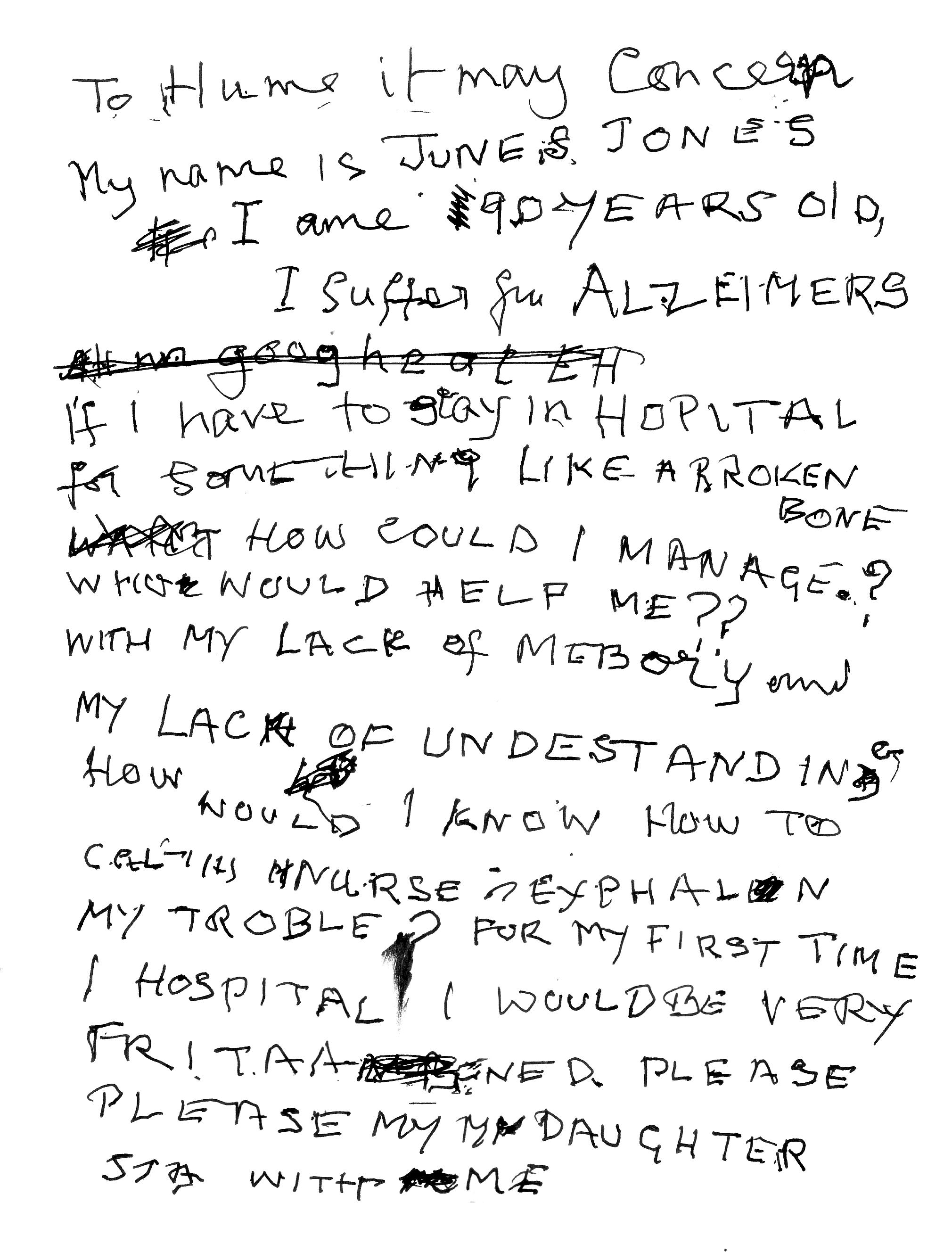
Families are never “visitors” to a person with dementia; they are an integral part of that person's life and identity and often their last, best means of connection with the world.
When June Jones (Julia's mother) lived in extra care accommodation and then in a care home, Julia was always able to act as her primary carer. June was one of the first supporters of John's Campaign and wrote a letter expressing her fear of separation and her need for loving support.
As the illness progressed June's world shrank to the dementia nursing suite where she lived her last years. That care home was the first in England to make a John's Campaign pledge. The mutually supportive partnership between June's family and the professional staff helped her through physical deterioration and mental distress to reach the end of her life surrounded by love and the kindest care.
John's Campaign is June's Campaign and must be Everyone's Campaign.
As Johns Campaign is a set of principles and attitudes rather than procedures and protocols, it will look different in different settings.
John's Campaign in Hospitals
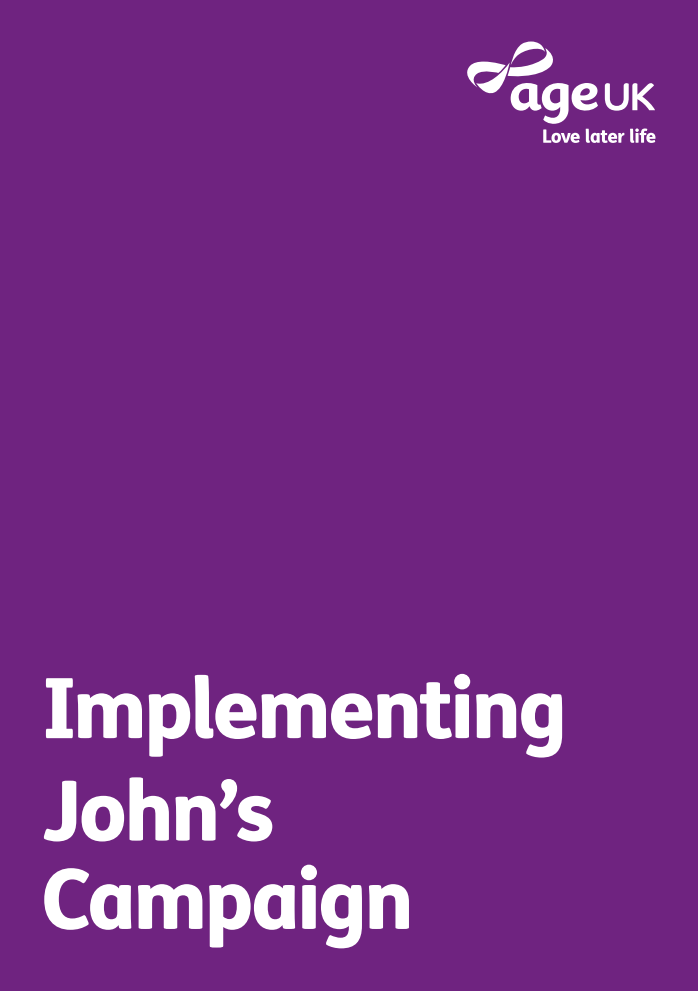
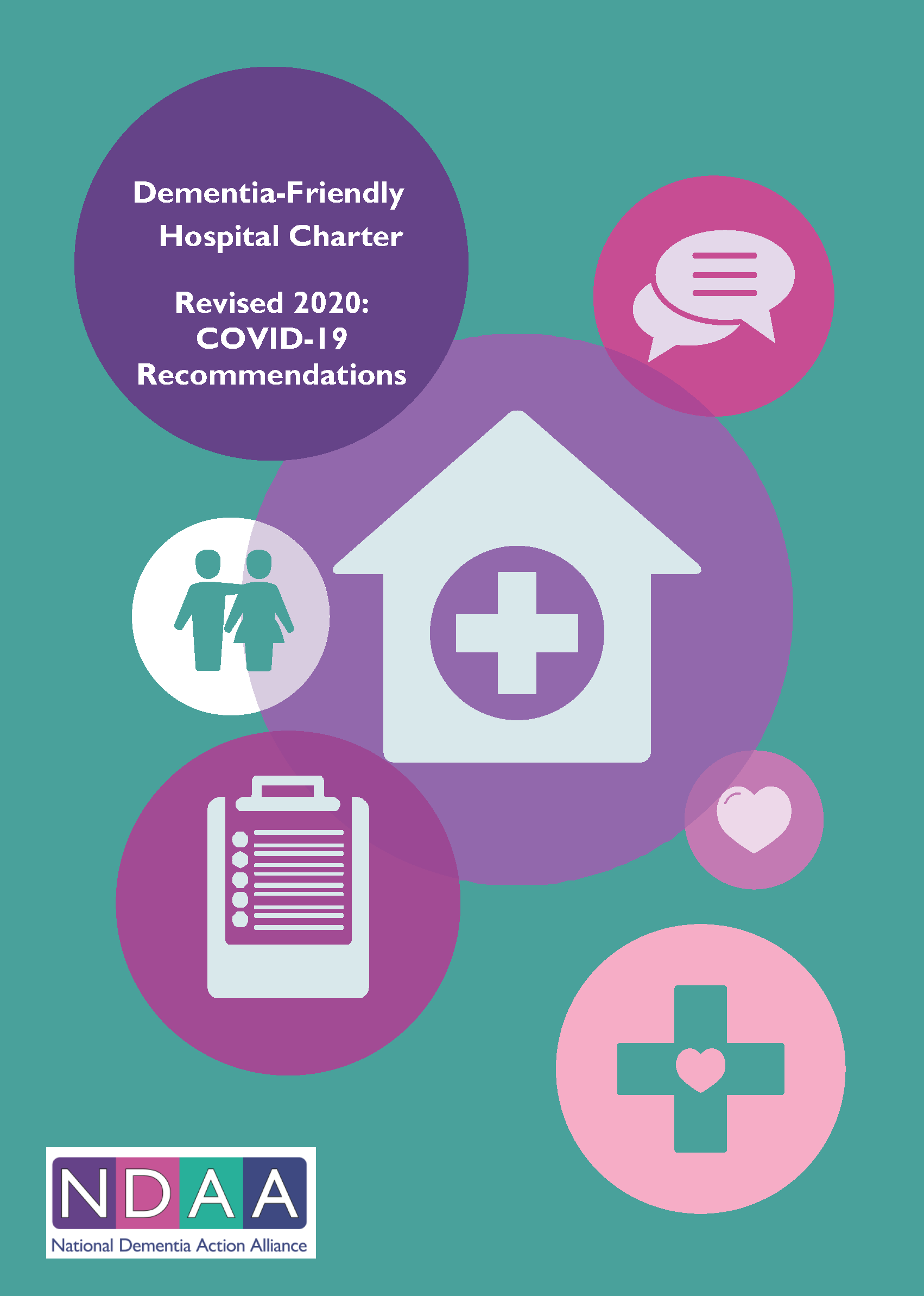
Early in our campaign we learned from the Alzheimer's Society what a risky place a hospital can be for someone with dementia, especially when they are deprived of the support of a willing family carer. These were statistics in their 2009 report Counting the Cost: caring for people with dementia on hospital wards:
- Over a quarter of hospital beds in the UK are currently occupied by people with dementia
- The average stay of a person with dementia is three weeks but it can be much longer if rehabilitation is a problem or there is nowhere suitable to go
- One third of people with dementia who go into hospital for an unrelated condition NEVER return to their own homes
- 47% of people with dementia who go into hospital are physically less well when they leave than when they went in
- 54% of people with dementia who go into hospital are mentally less well when they leave than when they went in
Since then much has been learned about the dangers of delirium and also the rate of physical deterioration when any older person remains in bed for even a few days. Families help provide the assistance as well as the motivation to eat and drink and mobilise. By the summer of 2018 all the acute trusts in England (and throughout the 4 UK nations) had made Carers Welcome pledges - and were seeing the benefits.
Many, but not all, have slipped back to their former restrictive practices under the pressure of the pandemic. Perhaps they have forgotten that dementia remains a disability, there is a continuing duty to make individual provision for patients with this condition.
We therefore welcome this recent publication by the Dementia Action Alliance and urge all hospitals to read it and remember their John's Campaign pledges.
John's Campaign in Residential Care
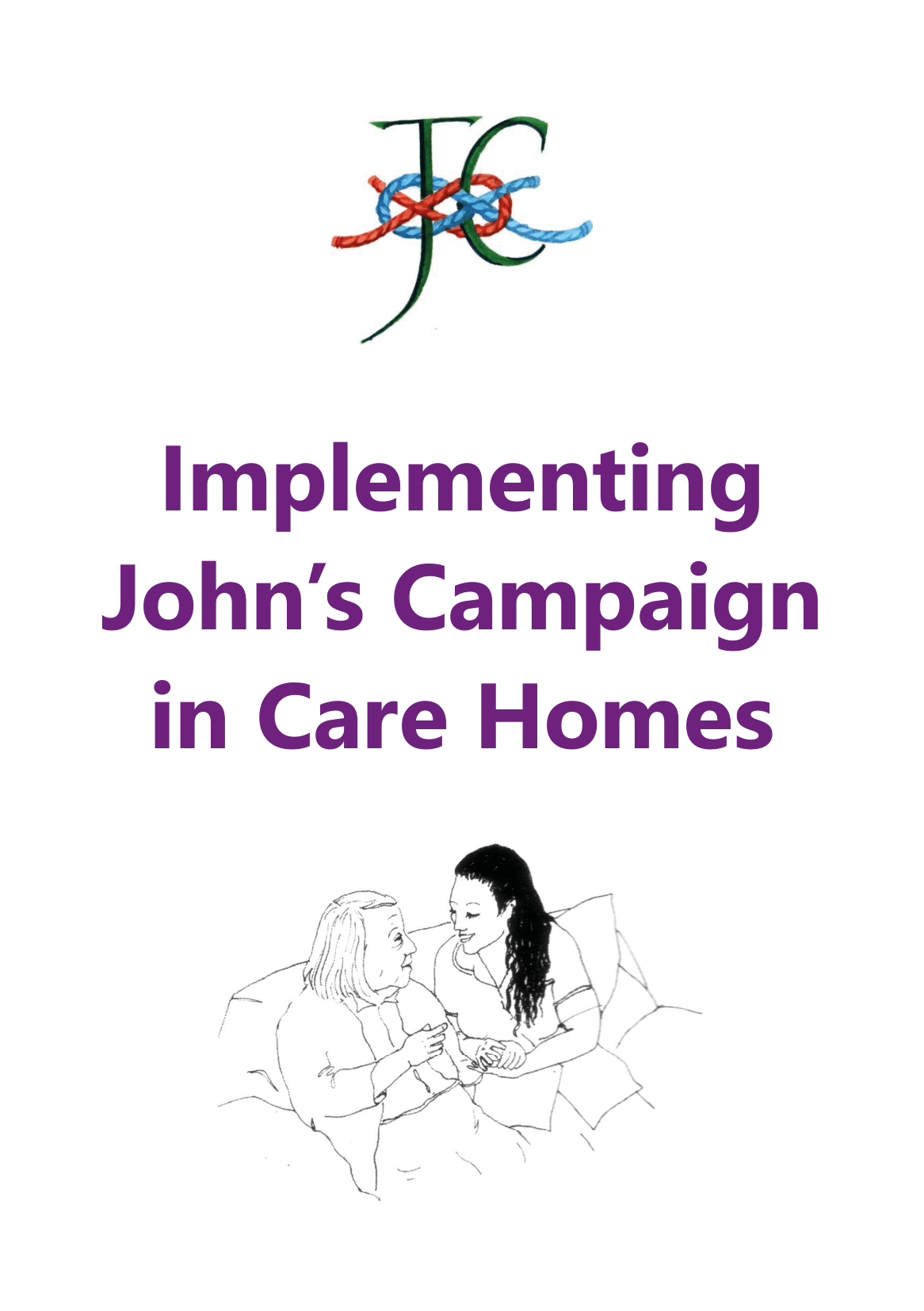

Though this was not the initial inspiration for John's Campaign we have been working with care homes since 2017 to make the best of family involvement and to support people's personal relationships through what are often the last years of life. We have many friends in the world of residential care and in February 2020 were supported by the Malnutrition Task Force to meet with our care home steering group and celebrate this publication of a jointly-produced Implementation booklet.
This was the extension of a similar booklet Honoured Guests, produced in partnership with Care England. At the time of writing (November 2020) those days seem long gone. Care homes and their residents have suffered greatly yet, at the time of writing, it continues to feel shocking that so many ‘Homes’ are not acting as people's homes - the place where the people who matter most (spouses, committed partners, adult children and grandchildren) are always welcome.
We are battling for change and know that there are very many (including a significant number of care home managers and staff) who are battling with us.
John's Campaign Elsewhere
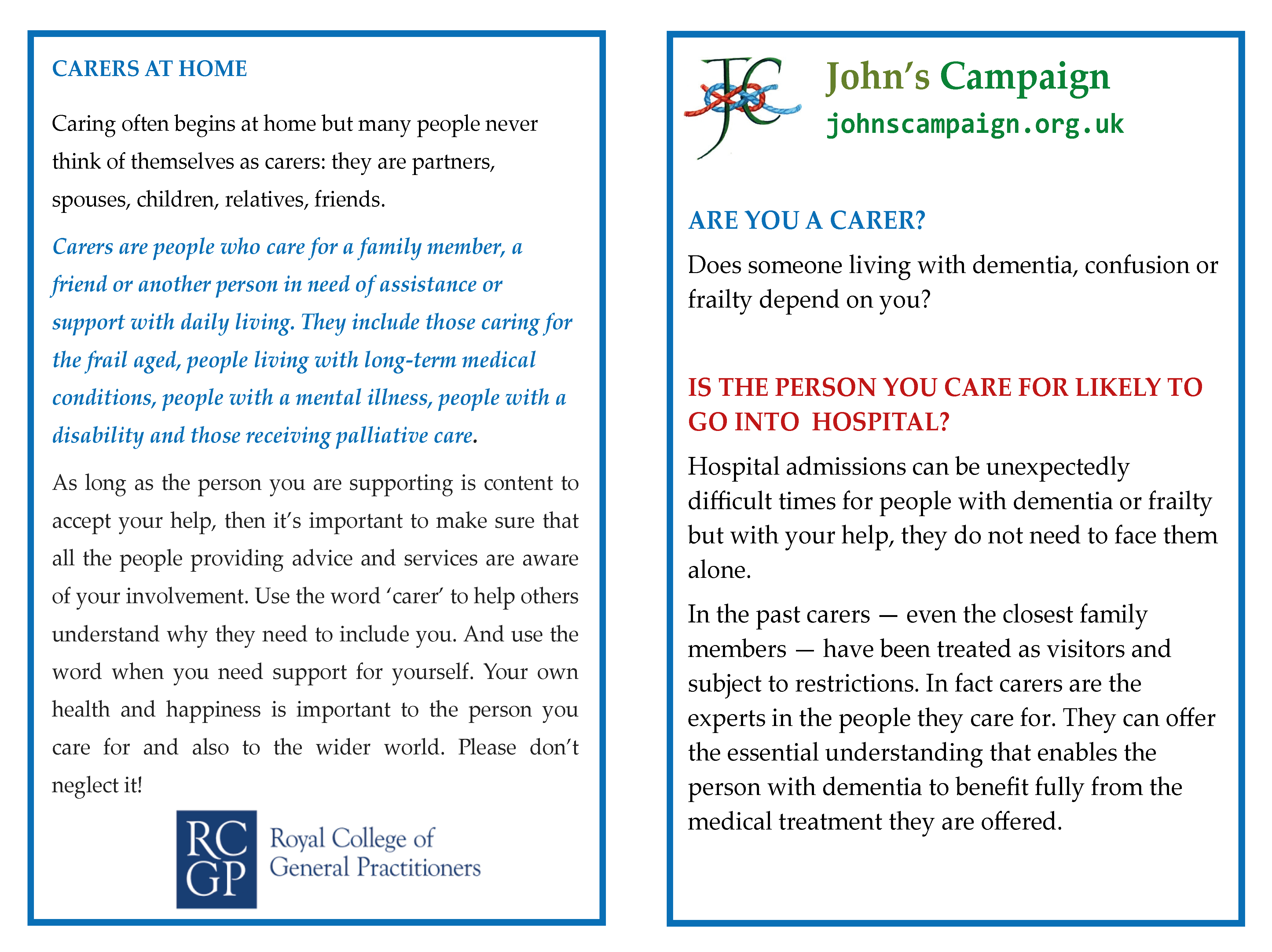
We believe that our campaign principles are applicable in all settings and have a particular concern that they should not be forgotten in Mental Health Units (see our collection Voices III). Often we wish we were a larger organisation and could achieve more. However the truth is that we represent a movement for change and it is the hundreds of individuals who put these basic principles into practice who are the true Campaigners.
THANK YOU TO ALL WHO HAVE PLEDGED YOUR WELCOME TO FAMILY CARERS AND ARE CONTINUING TO PUT YOUR PRINCIPLES INTO PRACTICE.


